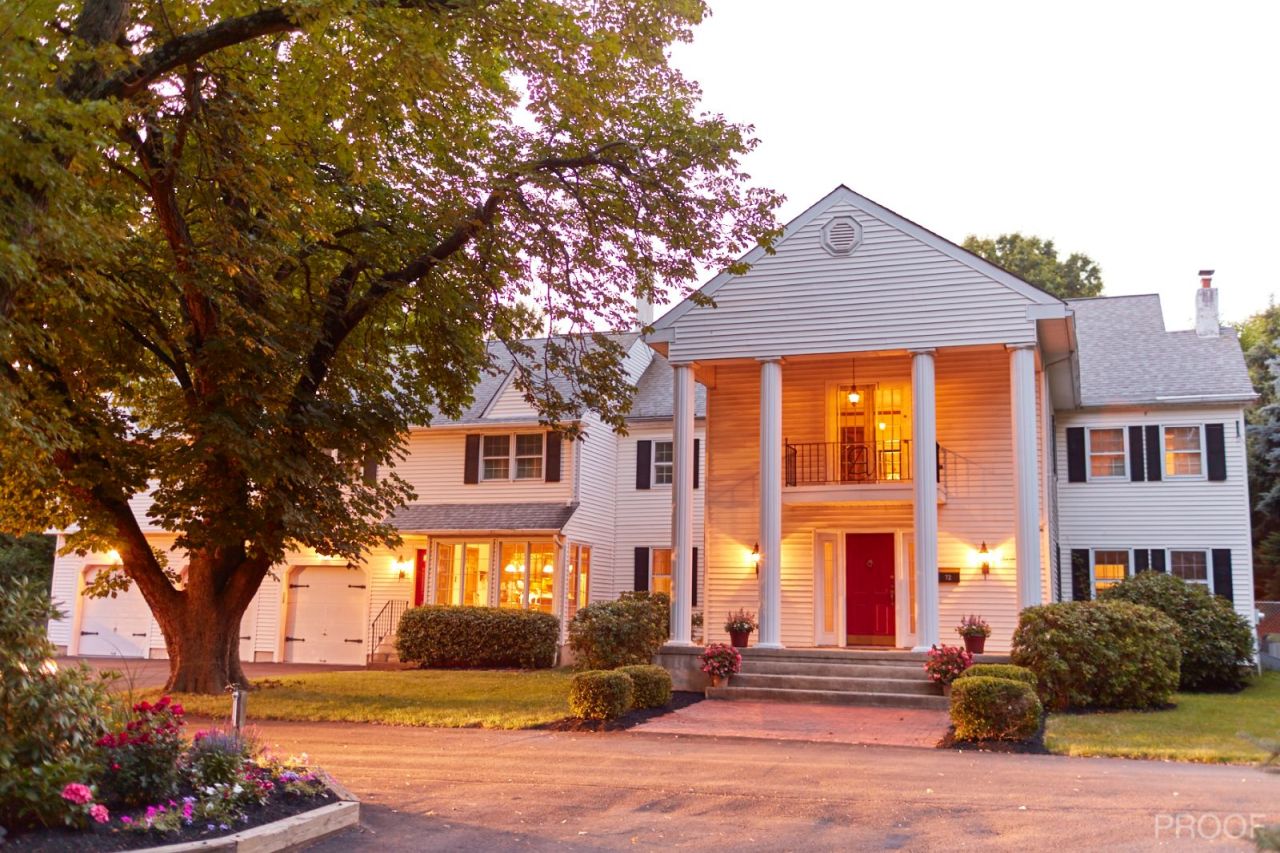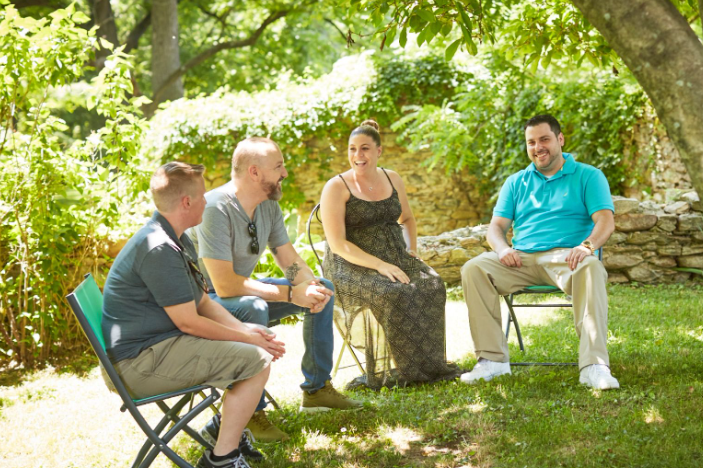Take A Tour
Alumni Testimonials
LOOKING FOR HELP
FOR YOURSELF OR A LOVED ONE?
Call us today and one of our counselors can help you or someone you love get into treatment today!
Call Now (844) 695-0083What Is Alcohol Rehab Like?
Many people have different notions about what alcohol rehab in Philadelphia or elsewhere is like. Inpatient rehab centers have been depicted on film and television. People have heard about treatment centers through hearsay. The fact is, the rehab experience can differ from one treatment center to another. By choosing DayBreak, you choose experience and expertise.
At our Philadelphia alcohol rehab, clients learn how to manage their addiction–the triggers that have compelled them to drink even when they know it may be the ruin of their health, relationships, and career. Alcohol rehab at DayBreak gives clients the chance to learn how to stop drinking, manage their addiction, prevent relapse, and repair their lives from the effects of alcoholism to the best of their ability. Rehab at DayBreak is a positive change in action, and you don’t embark on those changes alone. Our addiction specialists are here to support and guide you toward lasting recovery.
What to Expect During Rehab?
During your stay in alcohol rehab in Philadelphia, you can expect to begin with medical detox. Unless you’ve already been through detox, this process is essential for helping you overcome the physical dependence on alcohol. Withdrawal symptoms do accompany the detox process, but our clinicians offer treatment to reduce the severity of these symptoms. That’s important because severe symptoms can trigger serious health problems such as seizures or heart irregularities.
Most people find that their withdrawal symptoms peak between 24 and 72 hours from their last drink. These symptoms can involve headache, nausea, vomiting, chills, and powerful cravings to drink. Some people experience anxiety or depressions. Some might even have thoughts of suicide. However, with treatment and medication management of withdrawal symptoms, the discomfort can be controlled so that clients detox more comfortably. Our clinicians also hope to ward off delirium tremens (DTs), which are a set of serious withdrawal symptoms that sometimes occur. These symptoms can involve shaking, tremors, fever, and hallucinations.
After detox is complete, clients find that their withdrawal symptoms have subsided. At that point, they are ready to begin the next stage of addiction treatment. This phase of treatment targets the psychological aspects of alcohol addiction. Clients will meet one-on-one with therapists as well as with support groups to find new ways of coping with their triggers to keep relapse at bay.
How Long Is Alcohol Rehab?
The alcohol rehab process varies. Each person has their own unique needs. A person who has not been addicted to alcohol for a long period of time may find that a 30-day program suits them. Others find that they need formal rehab support for a much longer period of time. At DayBreak, we’re able to customize our treatments to suit each individual’s needs. A person’s unique chemistry and the length of time they’ve been addicted to alcohol can impact the time frame of their recovery.
30 Day Rehab
Usually, a 30-day rehab stint is the minimum amount of time required to provide a sound foundation for recovery. It takes time for a person to detox and then learn how to manage their cravings and triggers to use alcohol. Some clients spend 30 days enrolled in an intensive treatment program. After that, they may transition to a less intensive program that meets weekly rather than daily. In this way, they’re able to obtain support while getting back to their day-to-day lives.
60 Day Rehab
Often, clients enroll in 60-day alcohol rehab and Philadelphia prescription drug rehab to ensure that they get a robust level of support with their substance abuse treatments. Clients who are struggling with a long-term alcohol addiction or who may have underlying mental health conditions can benefit from a longer rehab stay. Again, many clients prefer to enroll in an intensive partial hospitalization program or intensive outpatient program before transitioning to a program that meets less often.
90 Day Rehab
According to medical evidence, the longer people receive high-quality addiction treatment, the less likely they are to relapse. Some clients find that 60 days isn’t enough to develop the stability they need to stay sober living on their own. In these cases, a longer 90 day treatment program may suffice. With more treatment, clients have more time to identify the triggers that led them to abuse alcohol and to find healthy ways to cope with those triggers. The recovery process can last for months–even more than a year, especially if a person also has a dual diagnosis. A 90 day program can provide the support clients need to achieve the sobriety they crave.
Why Choose DayBreak for Alcohol Rehab?
At DayBreak, we’ve designed an alcohol detox and rehab program that is responsive to our clients’ individual needs and we’re accepting patients now. Our experienced clinicians and therapists understand the challenges that clients experience on their road to recovery, particularly if they have a behavioral health cooccurring disorder or another addiction like a heroin addiction. Maintaining sobriety isn’t always easy, but with the strategies that clients learn during treatment, they can prevent relapse. DayBreak offers customized treatment for alcohol addiction. Everyone has unique circumstances and requires personalized attention to deal with their addiction in the context of their lives.
At DayBreak’s medical detox center and individual and group therapy sessions, you can expect empathetic care and real-world expertise along with our holistic approach to successful recovery. Choose to enroll in our inpatient treatment program or outpatient treatment programs. We can help you manage your substance abuse issues for the long term with reliable sobriety solutions. Contact us to learn more about our alcohol rehab enrollment and drug and alcohol treatment options as well as what insurance is accepted and our related centers in Philadelphia.








